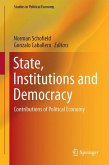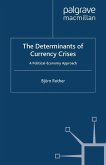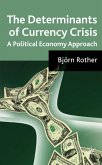Understanding the governance of nations is a key challenge in contemporaneous political economy. This book provides new advances and the latest research in the field of political economy, dealing with the study of institutions, governance, democracy and elections. The volume focuses on issues such as the role of institutions and political governance in society, the working of democracy and the electoral performance in several case studies. The chapters involve cutting edge research on many different countries, including the USA, Great Britain, Germany, Spain and the Third World. The authors of the chapters are leading scholars in political economy from America, Europe and Asia.
"This volume presents important work that challenges existing theories and evidence on institutions, democracy and elections. The chapters contribute to our understanding on the persistent effect of historical institutions on current institutions and on the decisions of different economic and political actors; on how governments are forced to induce changes in institutions and how these changes may take decades to materialize; on how popular demands induce government to make institutional changes that may not be welfare enhancing." (Maria Gallego, Journal of Economic and Social Thought, Vol. 2 (4), December, 2015)








